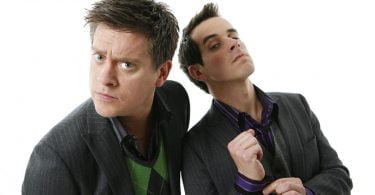When James Corden signed on last year for the American ‘Late Late Show’ chat programme on US network CBS, he did so as late night TV began to undergo a significant cultural shift.
In this advanced technological age, where Facebook, Twitter and YouTube are the norm in modern culture, America’s 3 major broadcast networks, ABC, NBC and CBS, are trying to adapt. They want to stay relevant for younger audiences, particularly in the late night time frame, as expectations of audiences shift from the star-studded programmes of prime time, to late local news and these hour long nightly shows.
The viral factor
Some of the networks already had the advantage, particularly with comedian Jimmy Fallon, who took over the coveted ‘Tonight Show’ programme on NBC. After the conclusion of the Winter Olympics in Sochi, Russia, Fallon put an emphasis on social media and content that would go viral the next day, whether it’s a star interview or a variety of sketches from Lip Sync battles to Thank You Notes.
The programme’s counterpart in the 12:30am Eastern Time slot is ‘Late Night with Seth Meyers,’ who also emphasises the new age influence. He focuses on a combination of star guests, extending interest to the next morning, especially for those who don’t stay up and watch the show live.
Fallon’s counterpart at ABC is Jimmy Kimmel, who fills the 11:30pm Eastern slot. Kimmel has transitioned into the viral and social expectations of an audience since his debut in 2003, and took over the slot normally coveted by the news programme ‘Nightline.’ Recent viral hits included US President Barack Obama reading comments about him on Twitter in the Mean Tweets segment of the show.
Playing catch up
With heavy competition from both NBC and ABC, younger viewers are being lured away from CBS. The network’s best known late night personality, David Letterman, retires in May after a 33 year career in television, taking with him a programme that focuses on a topical approach, similar to that of his predecessors in the industry. So, how could the network respond to such competition and keep late night television relevant?
CBS replied with Corden, known by some in the US already for his work in Gavin and Stacey as Smithy, and his work in the New York production of One Man, Two Guvnors. Corden’s debut on ‘The Late Late Show’ this week showed that the network was ready to play ball.
James Corden wants to make the world of late-night TV more diverse http://t.co/sxrz3i6cTF
— TIME.com (@TIME) March 24, 2015
James Corden tells @latimestvlloyd what to expect from his “Late Late Show,” which premieres tonight at 12:35 a.m.: http://t.co/VkJLHIzPyo
— Los Angeles Times (@latimes) March 24, 2015
Late night TV—redefined
Corden’s debut show on March 23rd brought something new to the late late format. Gone were the norms of American late night chat shows, and what appeared was something similar to the style of Graham Norton’s chat show on BBC One. The two main guests, actor Tom Hanks and actress Mila Kunis, were involved in sketches and other items, from a send up of Hanks’ film career in 5 minutes, to the something of an admission that Kunis was married to Ashton Kutcher (brought about after discussing being a new mother.)
There was also involvement from his house band and its leader, Reggie Watts, and a bar set up on the set. Yet, the hook came in the first 5 minutes, in a send up of the Willy Wonka films. CBS president, Leslie Moonves, inserted a series of golden tickets into chocolate bars, one of which was found by Corden, who was then taken through late night boot camp, led by personalities including veteran chat show host, Jay Leno, and actor Arnold Schwarzenegger.
So, is Corden ready? Leno, in an interview with BBC Radio 4’s Today programme, seemed to believe that Corden was ready, and that there was an appreciation for people looking at American culture with a different point of view.
“He brings that sense of wonder to it,” Leno said.
After @JKCorden‘s talk show debut, @jayleno says the secret to success is getting a laugh when the joke isn’t funny. pic.twitter.com/CvnAETXy0q
— BBC Radio 4 Today (@BBCr4today) March 24, 2015
By the time 1:37 am Eastern Time struck, and Corden said good night from a piano singing about his first show, it was clear. CBS was ready to advance to the next generation of American late night television, and Corden, to the eyes of many, was ready for the task ahead – making American viewers laugh before they head to bed.
But Corden has, in fact, done more than that. As the role of television in America evolves, in an age where viral and social media becomes the norm of the medium, Corden will likely be accepted and become a mainstay. He speaks not just for audiences in the United States, but for CBS and late night television as a whole, as it continues to adapt in the digital age.
What do you think? Can James Corden adapt to US audiences? Have your say in the comments section below.








